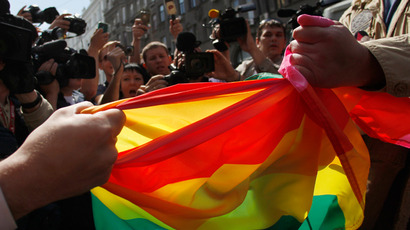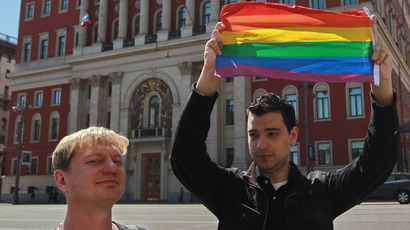Activists arrested as Duma votes to limit 'non-traditional sex propaganda'
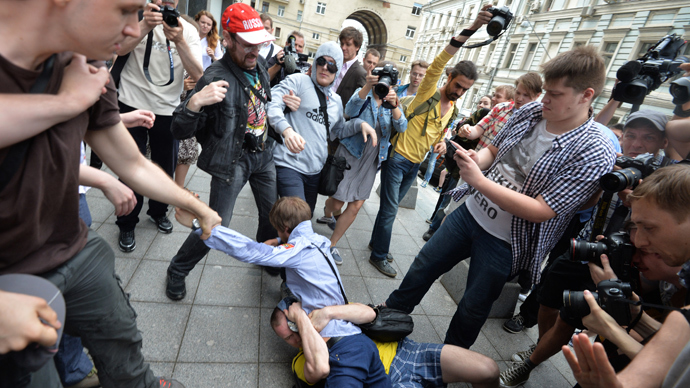
About 100 people gathered outside the Lower House of parliament in central Moscow to protest or support legislation that, if approved, would introduce fines for propaganda of non-traditional sexual relations to minors.
While the supporters of the initiative chose a more conventional form of expression and demonstrated with posters calling for a “purge” of homosexuals in Moscow and Russia, its opponents chose a more creative tactic.
Several gay couples started kissing near the entrance of the parliament building, demonstrating the vague line between the visual propaganda or promotion and the expression of a persons’ feelings. The protests were a re-run of the one held in December 2012 when the hearings on the draft law started.
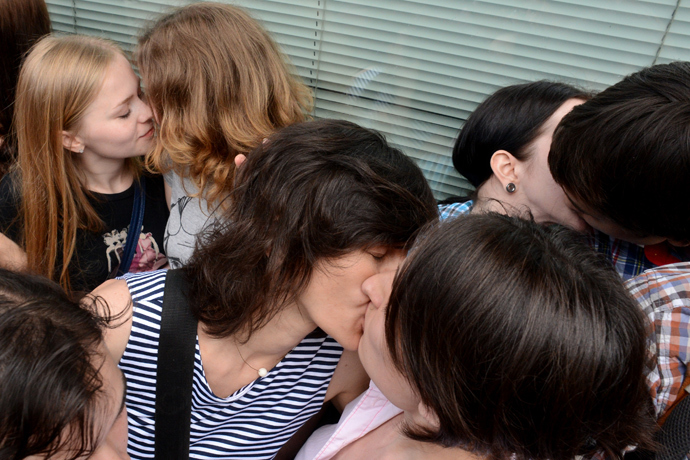
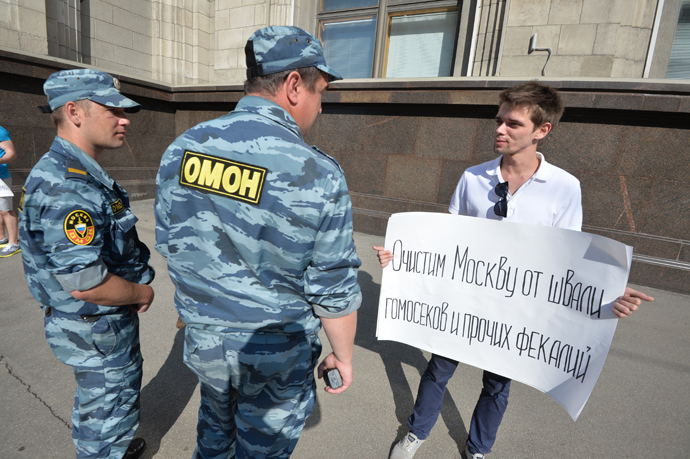
Police detained about 15 people for violating public order, but the inclination of those detained were not reported. All were released later the same day.
Initially the bill banned the propaganda of paedophilia and homosexuality to minors, but the formula was changed before the second reading, apparently after strong protests from the LGBT community, Russian activists and international rights groups who pointed that this could be viewed as discrimination based on sexual orientation.
The current version of the bill describes the propaganda of
non-traditional sexual relations as “spreading the information in
order to form non-traditional sexual desires in children,
describing such relations as attractive, promoting the distorted
understanding of social equality of traditional and
non-traditional relations and also unwanted solicitation of
information that could provoke interest to such relations.
One of the main sponsors of the bill, the head of the Lower House Committee for Family, Women and Children, Elena Mizulina, has elaborated in press comments that the last part concerned pop-up ads on the Internet.
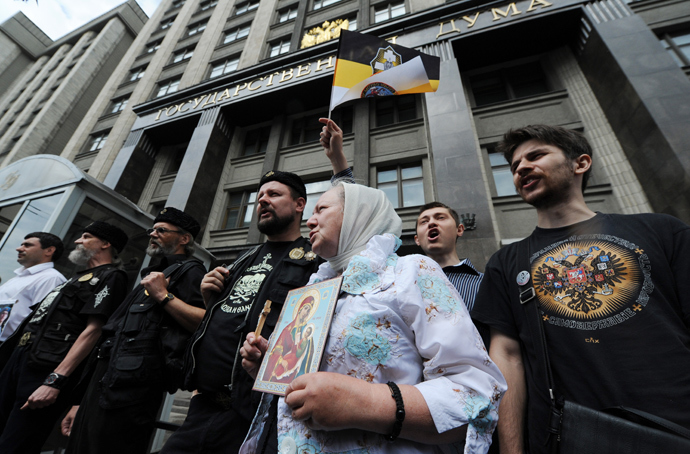
The amended bill was approved on Tuesday in the second and third
final reading and will now be considered by Upper House and
signed by the President. 436 Lower House MPs voted for it with
only one abstention.
Breaking the ban means a fine. An individual can be fined somewhere between $125 and $155 for real-life propaganda while legal entities could be charged up to $30,900. Internet promotion is punished with up to $3,100 fines for individuals and $30,900 for legal entities with forced suspension of their activities for up to 90 days.
Also the bill orders foreigners and people without citizenship to be expelled from Russia if found guilty of such a felony.
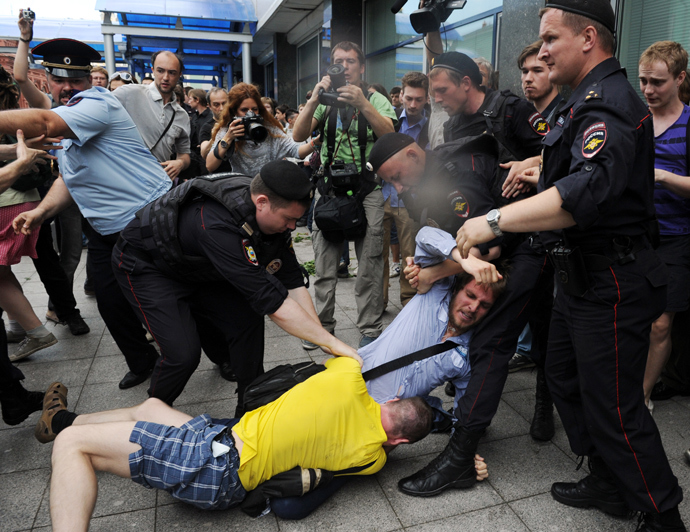
The international Human Rights Watch organization has described the proposed legislation as an attempt to make discrimination look decent, and says Russia authorities are violating the basic rights of representatives of LGBT community.
At the same time, the latest opinion polls shown an overwhelming majority of Russians support the ban on promotion of non-traditional sex. The share of supporters has grown to 88 percent from 86 percent last year. Moreover, 42 percent of those polled say homosexuality should be made a criminal offence, and 25 percent say that it should be subject to “public condemnation”.













